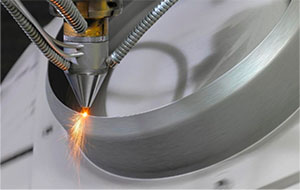
Critical Support for Additive Manufacturing Discussed in New White Paper from Nadcap Program

A new white paper from the Nadcap program states that additive manufacturing (AM), another term for modern 3D printing used to produce prototype parts, is rapidly becoming a transformative technology. Nadcap, administered by the Performance Review Institute (PRI), is an industry-managed approach to conformity assessment that brings together technical experts from both industry and government to set requirements for accreditation, accredit suppliers, and define operational program requirements in aerospace.
The Nadcap program is developing an audit criteria checklist — a critical tool used to compare a company’s practices and processes to established standards — for powder material manufacture for use in metallic AM. This checklist will complement the existing AM checklist for laser and electron-beam powder-bed fusion AM processes.
Additive manufacturing uses CAD software-driven equipment to deposit polymer or metal material in layers to form precise solid shapes, like aerospace parts. The white paper notes that the aerospace industry began using AM in the mid-1990s and now builds a variety of parts with it, including air ducts, brackets and fuel nozzles. NASA and SpaceX also make a variety of space hardware using AM processes.
The recent advent of multiple laser technology is also enabling high-volume AM production, and process improvements are leading to the manufacture of much larger AM parts. This progress in AM translates into significant returns in both durability and cost-efficiency for the aerospace market.
In addition to already-developed AM audit criteria, participants in various Nadcap program task groups are monitoring AM industry needs and developing audit criteria to meet emerging requirements. Both Nadcap and PRI personnel also work closely with the aviation industry as it adopts and maintains best practices for AM use. Nadcap audit criteria for AM have been used to accredit suppliers to the Nadcap program in the US, Canada, UK, Germany, The Netherlands, Italy, Switzerland and India.
Developments in AM, and its increased use in aerospace manufacturing, will lead to parts reduction, weight reduction and more fuel-efficient aircraft. Nadcap activities in AM will also help to ensure that companies in the AM supply chain are operating in accordance with the principles of this industry-driven program.
To access and download the full PRI white paper on AM, go to https://p-r-i.org/resources and search under ‘Nadcap’ and/or ‘Whitepapers.’
